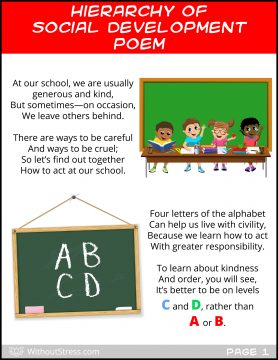QUESTION:
As a first grade teacher, I totally agree with DWS being the best way to go. However, I have some concerns about the developmental readiness of young children to operate on the level of Democracy on the Hierarchy. I seem to recall from my Ed. Psych. class that this level of behavior was ‘normally’ expected around the teenage years––if at all.
RESPONSE:
I’ve heard this concern raised before and although I haven’t taken psychology courses for many years now, I’m happy to give an opinion based purely on personal experience in the classroom. I teach Grade One too!
Firstly, I feel it’s important to review the definition of what it means to be operating on Level … >>>
READ MORE >>> →






